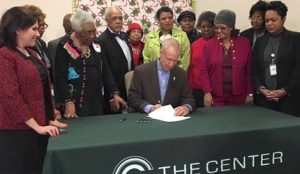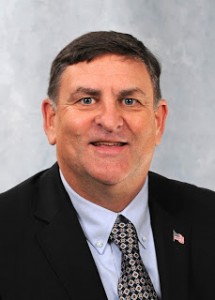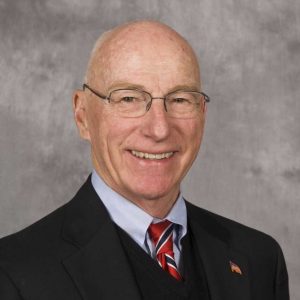Oil spill equipment, baseball bat makers show Rauner their operations
FAIRFIELD — Gov. Bruce Rauner stopped by two southern Illinois manufacturing facilities yesterday, noting the singular achievements of an oil spill equipment maker in Fairfield and a group of Ridgway artisans crafting baseball bats swung by major-leaguers.
“Yours is a great story,” Rauner said before his tour of Elastec, which employs roughly 20 people at a 46,000-square-foot facility on Market Street in Fairfield, and 110 companywide. “Thank you for your products, your expertise and your help in keeping our waterways clean.”
Elastec has its main offices in Carmi, a second manufacturing site in Florida, and has been in business for more than 25 years. Its team of welders and fabricators build oil skimmers, dispersant application systems, portable incinerators, vacuum systems, pumps, power packs, specialized vehicles and work boats. They also produce floating booms and barriers, debris containment systems and aquatic weed control devices. The company has gained an international reputation for its aquatic environmental products, now sold in more than 155 countries.
“We owe it to companies like yours that are bringing manufacturing in Illinois into the modern era to step up the business-friendliness of Illinois,” Rauner said. “This state has so many desirable assets in transportation, distribution, technology — and a tremendous workforce. But we must roll back the Madigan tax, bring property taxes down and do more to reduce regulatory burdens on our manufacturing sector.”
“It’s obvious and apparent that the governor is doing his best to try to strengthen the state, especially in the jobs area,” said Jeff Bohleber, who is Elastec’s chief financial officer and a board member. “We’re local people who started a business in the community where we were raised. We obviously want to grow and stay in our area and allow our children and their children to have a future here.”

Governor Bruce Rauner touring Dinger Bats in Ridgway. The Gallatin County company produces bats for several MLB players (governor.illinois.gov photo)
At Dinger Bats in Ridgway this afternoon, the governor could not help but smile at the stacks of baseball bats lining walls, stacked in tubes and piled on pallets in various stages of production.
“This place is every boy’s dream,” he said. “How could you not love working here?”
An Illinois artisan stop on the Illinois Makers/Enjoy Illinois tourism promotion, Dinger Bats makes hand-crafted bats for sluggers ranging from college players to MLB World Series winners.
“You guys made the bat Kyle Schwarber used in the Chicago Cubs’ World Series-winning season,” Rauner said. “It doesn’t get much cooler than that.”
The company employs 16 and was founded by Kyle Drone and his father, Randy. Rauner was joined by state Sen. Dale Fowler, R-Harrisburg, at the Ridgway stop.
“It’s an honor to have Governor Rauner and Senator Fowler visit the factory and really take the time to listen to the needs of small businesses in all parts of the state,” Kyle Drone said.
“Dinger Bats is an incredible small business success story from southern Illinois where a company took a passion for creating a quality product and worked hard to grow into a nationally recognized manufacturing company that produces bats used in the major leagues,” Fowler said. “I’m happy to see a southern-based manufacturer receive some well-deserved attention for their growth, contributions and success.”
Rauner said it’s his game plan to help the company hit even more home runs.
“You’ve managed to remain a family-owned business manufacturing high-quality, American-made maple baseball bats that are now sold in Mexico, Europe, Korea, Taiwan and Australia,” the governor said. “By cutting taxes and getting government out of the way, Dinger Bats and companies all over Illinois can grow faster and create more good, high-paying jobs.”







